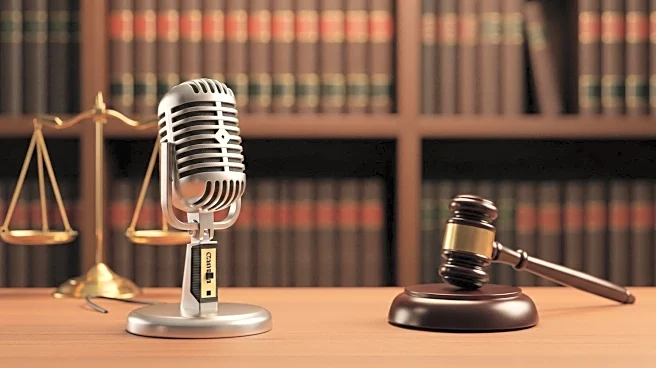What is the story about?
What's Happening?
FCC Chairman Brendan Carr has threatened to revoke ABC's broadcast licenses following comments made by comedian Jimmy Kimmel about the alleged assassin of conservative activist Charlie Kirk. Carr, appointed by President Trump, criticized Kimmel's remarks as misleading and suggested that ABC could face license revocation if action is not taken against Kimmel. In response, Disney/ABC suspended Kimmel's show indefinitely, and Nexstar, an ABC affiliate owner, announced it would preempt the show. This situation has ignited a national debate on government censorship and First Amendment rights. Legal experts, including Blair Levin, argue that the FCC lacks the authority to revoke licenses under these circumstances, citing the high legal standard required for such actions.
Why It's Important?
The threat to revoke ABC's licenses raises significant concerns about government overreach and the potential impact on media freedom in the U.S. If the FCC were to proceed with license revocation, it could destabilize the broadcast industry by introducing uncertainty about the security of broadcast licenses. This situation highlights the tension between political influence and media operations, with potential implications for how broadcasters manage content that may be deemed controversial. The debate underscores the importance of First Amendment protections and the legal boundaries of FCC authority, which could affect future interactions between government entities and media companies.
What's Next?
While the immediate threat of license revocation appears to have been mitigated by ABC's and Nexstar's actions, the broader implications for media freedom and government influence remain. The FCC's authority and its potential actions will likely continue to be scrutinized, especially as Nexstar pursues a merger with Tegna, requiring FCC approval. The situation may prompt further legal challenges and discussions about the role of government in regulating broadcast content. Stakeholders, including media companies and legal experts, will be closely monitoring any developments that could affect the broadcast industry's regulatory environment.
Beyond the Headlines
The controversy surrounding Carr's threat and the subsequent actions by ABC and Nexstar may lead to a shift in how national networks approach content distribution. With streaming platforms as an alternative, networks might increasingly move controversial programming online, potentially altering the landscape of broadcast media. This shift could have long-term implications for how audiences access content and how networks balance traditional broadcasting with digital distribution.















